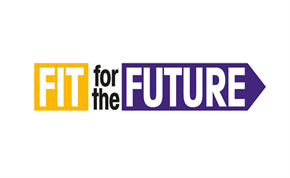
The last few months have seen increasing pressure on all part of the health service. Can partnership working (as part of Fit for the Future) offer options to help our patients by developing new pathways and approaches? We took a look at the newly formed Integrated Care Systems (ICSs) and the potential that they offer…
What is an Integrated Care System?
On 1 July this year, new Integrated Care Systems (ICS) came into being around the country. Integrated care systems (ICSs) are partnerships of organisations that have come together to plan and deliver joined up health and care services, and to improve the lives of people who live and work in their area. As from 1 July - following several years of development as CCGs merged to form ICSs - they became statutory bodies.
Integrated Care Systems are made up of:
They have been set up to bring partner organisations together to improve outcomes for local people’s health and healthcare and tackle inequalities across the health system. The aim is that they will use these partnerships to ensure that people get care as quickly as possible - in particular, people with preventable conditions, long-term conditions or mental health issues and people with multiple. There is also a focus on reducing health inequalities and addressing the social issues that impact on health such as housing and employment.
We have six Integrated Care Systems across our region:
Why are they important?
EEAST is the only regional partner and provider. So, it’s really important that we work with our ICSs to improve and develop urgent and emergency care at a regional level whilst maintaining a local neighbourhood approach.
The new landscape that we are now part of will mean that we will be looking to develop new models of care working with our system partners. The Partnerships workstream of Fit for the Future has a number of projects that are key to this including:
Working with our ICSs
An example of how we can work with ICSs was having an EEAST presence at the Suffolk & North East Essex (SNEE) launch event - a special Expo at the Rowley Mile Exhibition Centre at Newmarket. The event featured health care providers and stakeholder groups from all over the SNEE area. EEAST was there so that we could continue to build relationships, and to present ourselves as an employer of choice. We also showcased the contribution our CFR volunteers make in using Raizer chairs to respond to fallers in the community who could wait for a resource to assist them - thereby reducing the numbers of ambulances that we send to these patients.
We also promoted some of our initiatives in the green sustainability arena - including our rapid response new Zero-Emissions electric rapid response vehicles. The vehicles are part of a two-year NHSE Pathfinder programme that we are taking part in. Chief Executive of EEAST Tom Abell spoke to the media about the new vehicles, and also about EEAST’s role in the way healthcare services are now configured with the launch of ICSs.
Opportunities such as these help us showcase the many positive initiatives that EEAST is developing as well as having conversations about new ways of working.
Want to know more?
Kate Vaughton - Executive Director of Integration
Published 26th July 2022